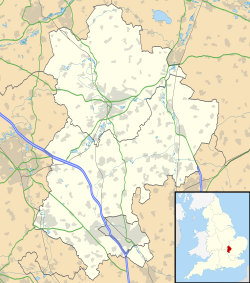History
Evidence suggests that the area which Biggleswade now occupies was inhabited as early as 10,000 BC. Coins dated to the 1st century BC have also been found, and traced back to the Celtic chief Taseiovanus, who resided in what is now St Albans, Hertfordshire. During the 5th century AD Saxons named the river Ivel and built settlements which evolved into the present day villages of Northill and Southill, to the west of Biggleswade.
The Domesday Survey records the manor of Biggleswade as being governed by Ralph de Insula (Ralph de Lisle), on behalf of the monarch. Later, in the 12th century, Henry I transferred custody of Biggleswade to the Bishop of Lincoln. Successive bishops maintained significant influence until the mid 16th century, when Edward VI obtained direct control over the town and its surrounding area.
By the end of the 13th century, the half-hundred of Weneslai, which at Domesday included the parishes of Hatley, Everton, Potton, Sandy and Sutton had been subsumed into the hundred of Biggleswade. [1]
In 1785 'the great fire' swept through the town of Biggleswade and destroyed many of its buildings. The subsequent rebuilding effort, along with other factors, encouraged more people to settle in the town, triggering a significant (80%) population growth during the first half of the 19th century. This culminated in 1850, when Biggleswade became the first town in Bedfordshire to gain a mainline train station.
This page is based on this
Wikipedia article Text is available under the
CC BY-SA 4.0 license; additional terms may apply.
Images, videos and audio are available under their respective licenses.

